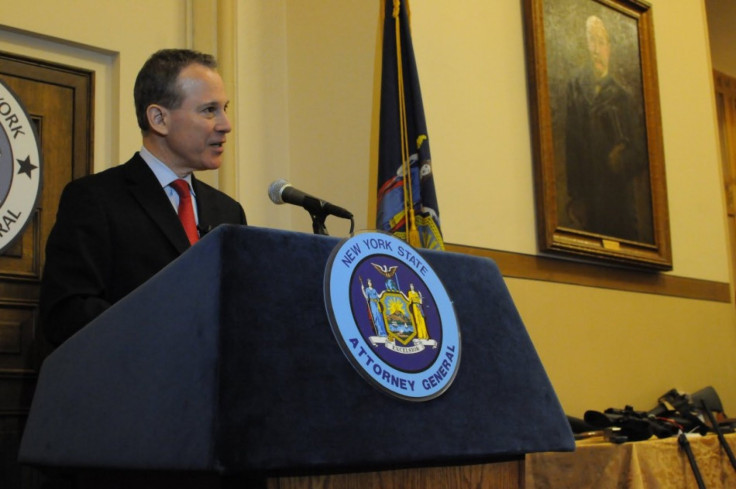State AGs Urge Supreme Court To Back Montana's Corporate Money Ban [READ BRIEF]

A group of states, represented by New York Attorney General Eric Schneiderman, backed Montana in its U.S. Supreme Court battle over a ban on corporate spending in local politics and 2010's Citizens United knocking down campaign finance regulations.
In a brief filed Monday with the high court, 22 states and Washington, D.C., said the justices should keep Montana's century-old anti-corruption law prohibiting companies from spending money directly on campaigns.
The brief signed by 23 Democratic and Republican attorneys general urged the Supreme Court to reject an appeal from Montana corporations that unsuccessfully challenged the law as trampling on companies' the First Amendment right to free speech under the Citizens United ruling.
The Montana law at issue here, like many other state laws regulating corporate campaign expenditures in state and local elections, is sharply different from the federal law struck down in Citizens United, and the Court need not revise its ruling in Citizens United in order to sustain the challenged Montana law, Schneiderman, a Democrat, wrote.
Montana became the latest battleground in the fight over campaign spending regulations in February when the state Supreme Court upheld the Corrupt Practices Act, a law voters enacted in 1912 following bribery and kickback scandals involving law makers and mining interests.
The law was one of the state regulations targeted in lawsuits following the Supreme Court's Citizens United ruling, which held companies and unions could independently spend unlimited amounts of money to support or denounce a candidate for federal office.
In a 5-2 January decision, the Montana Supreme Court said the law could stand under the Citizens United ruling because the state had a compelling interest to limit corporate involvement in politics with narrowly-tailored regulations, like requiring companies to create separate committees for campaign spending.
The companies and conservative groups challenging the law appealed the decision to the U.S. Supreme Court, asking the justices to reverse the Montana ruling without a hearing for conflicting with their Citizens United holding.
The 23 attorneys general disagree, arguing that Montana and other states present a unique set of questions that the Supreme Court should consider before throwing the case out.
Even if the challenged Montana law were identical to the federal statute struck down in Citizens United -- and, as shown below, it is far from identical -- disposing of this case on the merits would require a fully considered analysis that takes these constitutional distinctions into account.
If the justices decide to take action on the case, the states said they support a full hearing with oral arguments and merit briefs -- something Justices Ruth Bader Ginsburg and Stephen Breyer suggested in February.
For critics of the Citizens United ruling, the Montana case is unlikely to overturn the controversial 2010 ruling. Still, taking the case would give the court an opportunity to examine how U.S. politics has changed in its wake.
The states with Democratic attorneys general include Massachusetts, North Carolina, Minnesota, Rhode Island, Mississippi, Nevada, Vermont, New Mexico, New York, California, Arkansas, Illinois, Iowa, Kentucky, Maryland, Hawaii, Delaware, Connecticut and West Virginia; states with Republican attorneys general include Washington, Idaho and Utah.
ATPvBullock States Brief Supporting Montana
© Copyright IBTimes 2024. All rights reserved.





















